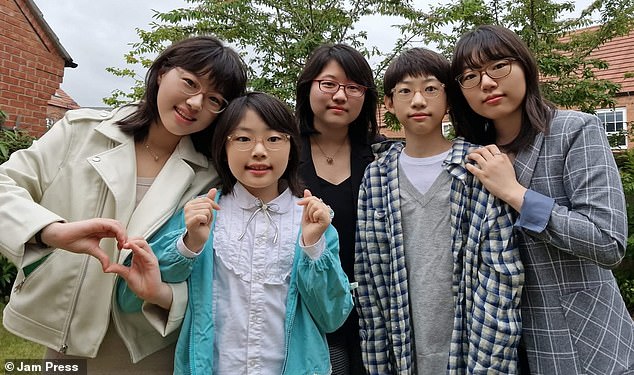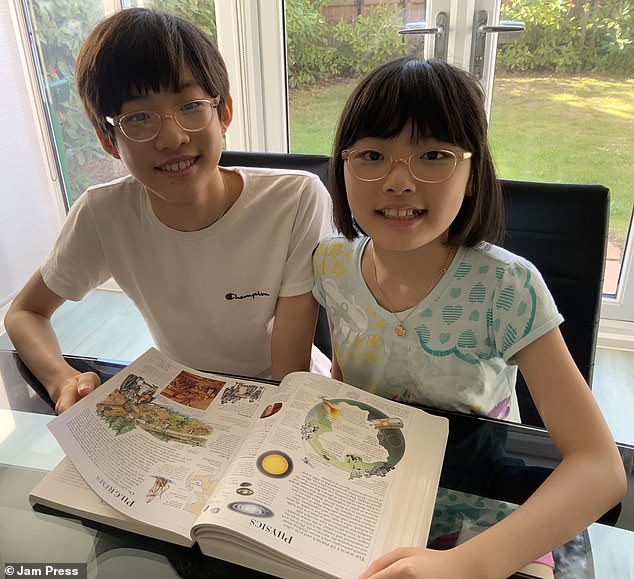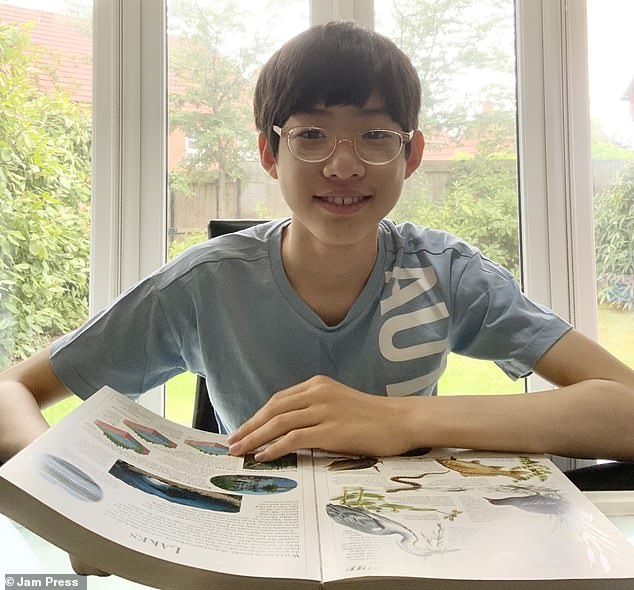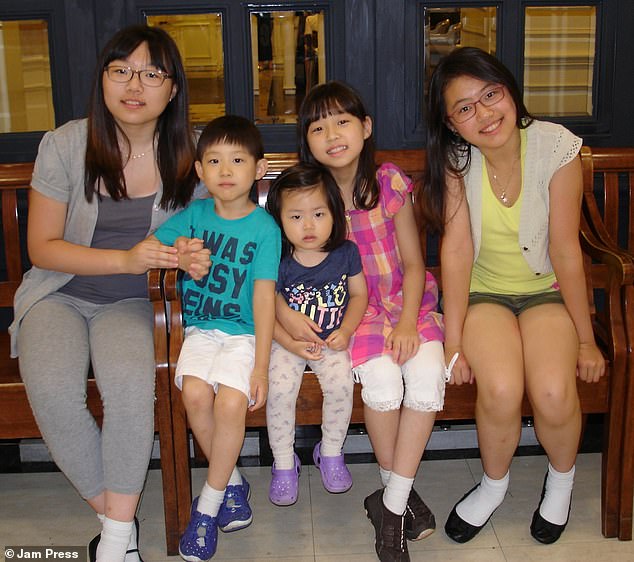Forget timetables or spelling bees, the Kim family’s quiz asks why the sky is blue, which organelle triggers cell death, and which god kept Odysseus from returning home, and they might be the cleverest family in Britain.
The majority of 14-year-olds take some time to adjust in the first few weeks of Year 10, and spend time with friends whilst looking ahead to their GCSEs.
However, Elias, from Burton upon Trent in Staffordshire, has always been ahead of the curve, and later this month, he will begin a biomedical engineering degree at Imperial College London, one of the most demanding courses at one of the world’s top institutions.
He is not the only child to outperform the norm; in fact, he’s joined by his four siblings. His sisters, Juliana, 24, Clara, 22, Ella, 20, and Ariel, 11, have all followed accelerated paths through school and university.
Elias first sat GCSEs at ten, breezed through them with grade 9s across the board, then went on to collect four A stars and an A at A-level.
He was given an unconditional offer to Imperial at 13, which meant he would get in regardless of his A Level results, but decided to prove himself anyway – smashing it with four A stars in maths, further maths, chemistry and physics and an A in biology.
Juliana and Clara are both PhD students at Imperial, Ella is at University College London, and Ariel has already notched up 9s in maths, chemistry and physics.

Meet the Kims, possibly the cleverest family in the UK. Pictured from left to right: Ella, Ariel, Juliana, Elias, Clara

Elias, from Burton upon Trent in Staffordshire, has always been ahead of the curve, and later this month, he will begin a biomedical engineering degree at Imperial College London. Pictured: Elias studying with his little sister, Ariel
The family’s story began in South Korea, where the three eldest daughters were born, before moving to Canada in 2006 and then Northern Ireland, following their father Sung in Kim’s academic work.
A university job later brought him to Coventry, where the family settled and their youngest daughter, Ariel, was born.
Their mother, Kyounghwa Jung, a former maths teacher, runs the household and still speaks little English, so Korean is the main language at home.
The turning point came during lockdown in 2020, when Elias was in Year 4 and Ariel in Year 1. Rather than letting the pandemic be a stumbling block for their siblings, the Kim sisters used it as an opportunity to help their siblings thrive.
They began homeschooling the younger children while juggling their own degrees, using South Korean textbooks alongside the British curriculum.
Juliana, studying bioengineering, explained to The Times: ‘We could not stand them learning nothing, because at primary school they didn’t provide much learning or support.
‘Elias was finding it boring and it wasn’t fast enough [for him], so we did extra support to make it work.’
Ariel, who is particularly passionate about biology and chess, has since sat GCSEs years ahead of her peers.

He was given an unconditional offer to Imperial at 13, which meant he would get in regardless of his A Level results

The family’s story began in South Korea, where the three eldest daughters were born, before moving to Canada in 2006
She earned 9s in maths, chemistry and physics, as well as additional maths, and an 8 in biology.
‘When they gave work, I always finished first, so I always had to wait,’ she said of her time at school.
Elias’s own gifts were noticed early. Teachers in Belfast, where he was at primary school, suggested he skip a year after realising his reading and maths were well ahead of his classmates. But even in Year three, he found lessons too easy.
The Kims believe the UK education system has helped them realise their potential, allowing them to focus on specialist subjects while progressing through the basics quickly.
Juliana said she likes the education system in the UK as it means she can also focus on the subjects she enjoys.
Clara added: ‘In a way, the UK system is somewhat an advantage to us.’
Elias considered Oxford, but his application was rejected for not having enough GCSEs.
His younger sister Ariel, however, is already working to meet the requirements and hopes to study maths there.
The Kims are now hoping to share their approach with others. The three eldest sisters have launched a tutoring business, NewGenTutor, offering online classes in maths and science at £55 an hour.











